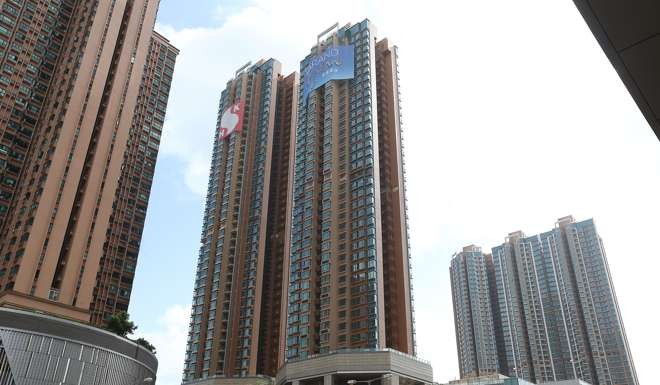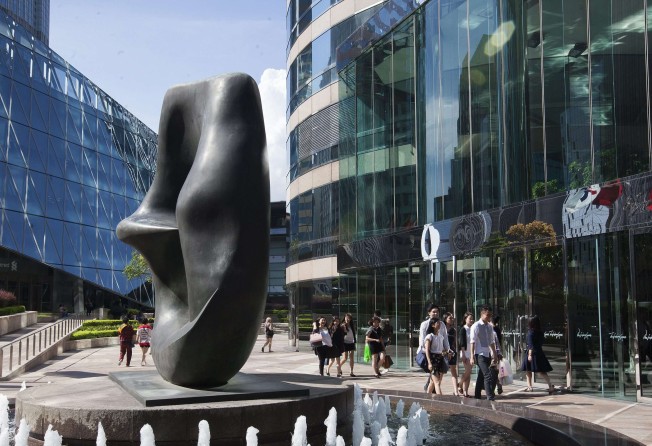
Hong Kong markets shrug off plunge in property stocks after stamp duty rise
Property stocks took dramatic dives on Monday after last week’s stamp duty increase.

Property stocks in Hong Kong slipped to three-month lows on Monday after the government’s decision to increase stamp duty, but the markets shrugged off the losses to move higher.
The Hang Seng Index closed up 0.7 per cent or 158.78 points to 22,801.4 points, while the Hang Seng China Enterprises Index was up 1.23 per cent at 9,608.24 points.
Stocks of property developers sank to three-month lows after Friday’s announcement that non first-time individual and corporate buyers would be required to pay a 15 per cent stamp duty. The move comes ahead of an election campaign where housing affordability is likely to be a central issue.
Sun Hung Kai Properties fell 9.88 per cent to HK$104, Cheung Kong Property Holdings slipped 8.81 per cent to HK$52.80 while New World Development fell 9.03 per cent to HK$8.87. Henderson Land Development also dropped 5.79 per cent to HK$43.10.
Morgan Stanley analyst Praveen Choudhary said he expected to see near-term negative impacts on volume and margin – and therefore stock prices, from the new rules.
“Stocks could see de-rating as the regulatory pressure came earlier than expected, and there could be margin pressure for developers if they sell at a discount.”
Many investors were likely to be de-risking ahead of the United States presidential election on Tuesday, with a lot of investors cancelling their short positions, Haitong International sales trading managing director Andrew Sullivan said.

“There’s lots of reasons people might be sitting on the sidelines,” he said. “There’s just general concerns out there.”
He expected trading to ease back over the next day until the US presidential election result is announced.
“A lot of people are concerned about the Brexit phenomenon,” he said, referring to the possibility of an unexpected Donald Trump victory.
Nomura said the election had become the largest “known-unknown” markets have had to deal with since the global financial crisis.
Carmakers were among the upward movers, with Geely Auto climbing 4.59 per cent after good third-quarter results.
Hong Kong’s largest lender, HSBC, was up 3 per cent after releasing its third-quarter results on Monday, which saw a pre-tax profit that beat analysts’ estimates.
China Shenhua, the largest coal mining company in the world, was up 4.19 per cent to HK$17.42, a 52-week high.
On the mainland, the Shanghai Composite Index was up 0.26 per cent to 3,133.33 points while the CSI 300 – which tracks the large caps listed in Shanghai and Shenzhen – was up 0.07 per cent to 3,356.59 points.
The Shenzhen Component Index fell 0.07 per cent to 10,695.18 points while the Nasdaq-style ChiNext shed 0.7 per cent to 2,130.3 points.
The People’s Bank of China reduced the yuan’s daily reference rate by 211 basis point to 6.7725, the biggest cut in over two weeks. The PBOC allows the currency to trade 2 per cent either side of the reference rate.
The CFETS RMB index, a gauge of the yuan’s strength against a basket of trade-weighted currencies, fell to 93.78 last Friday, 0.37 points lower than the previous week.
In Asian trading, Tokyo’s Nikkei 225 closed up 1.61 per cent, South Korea’s Kospi climbed 0.79 per cent and Sydney’s All Ordinaries rose 1.29 per cent.
All three major US indices closed lower last Friday, with the Dow Jones Industrial Average finishing 0.24 per cent down at 17,888 points and the S&P 500 slipping 0.17 per cent to 2,085 points. Meanwhile, the Nasdaq Composite was down 0.24 per cent at 5,046 points.
It was the S&P 500 Index’s ninth straight day of declines, the longest losing streak in 35 years. The CBOE Volatility Index, a gauge of equity volatility, surged 73 per cent in nine days, the longest stretch of gains on record. Investors piled into US treasuries, driving their prices up by the most since September, after data showed that progress in the American labour market had done little to soothe anxiety over the election result.
Crude oil was 0.75 per cent higher in Asian morning trading, after sinking 11 per cent in the previous six trading days, as hopes faded that Opec will be able to implement a deal to cut output.
Hong Kong-listed companies with American Depository Receipts (ADRs) traded in the US mostly fell on Friday. However, most of them closed at higher than their equivalent Hong Kong closing prices after conversion into the local currency.
HSBC’s ADR finished at HK$57.634 compared with HK$57.45 at the close in Hong Kong, while Sinopec’s ADR ended at HK$5.556, in comparison to HK$5.60 in Hong Kong.